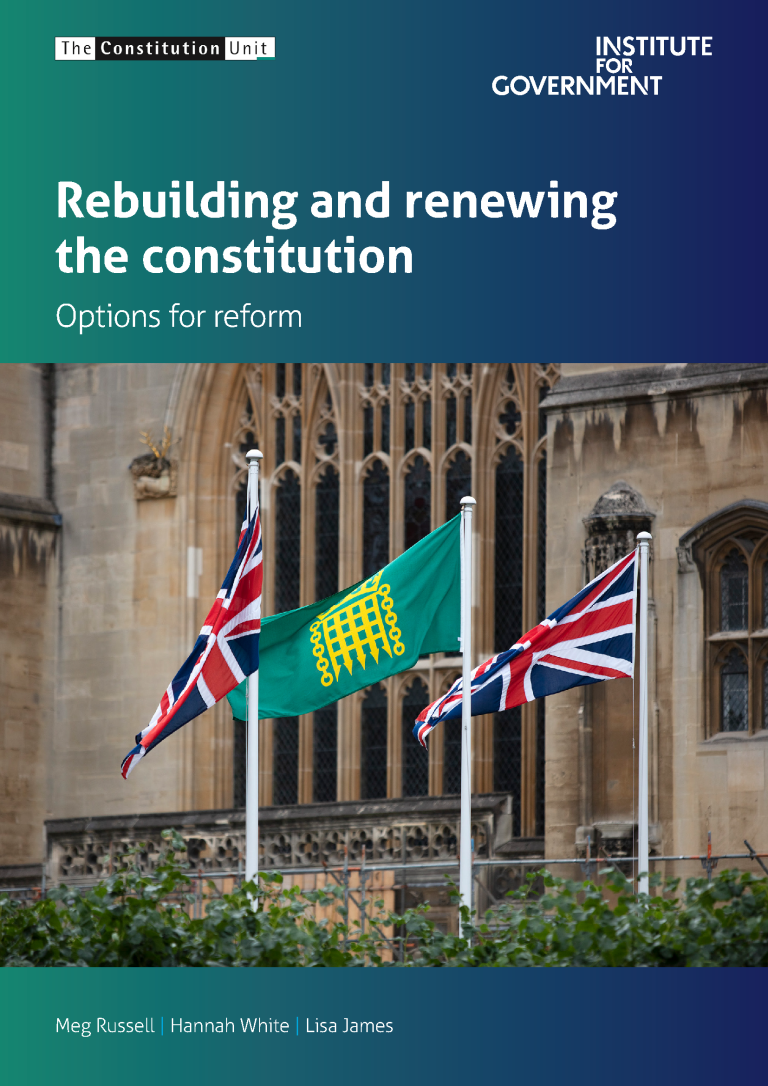NEW REPORT: Rebuilding and Renewing the Constitution
19 July 2023
A new joint report by the Constitution Unit and the Institute for Government sets out a menu of constitutional reforms available to political parties to strengthen the UK’s constitution and governing institutions.

Political parties are under pressure to respond to increasing public concern about the health of democracy. A tumultuous period in UK politics has led to increased tensions between parliament and the executive, a deteriorating relationship between ministers and the civil service, friction between government, parliament and the courts, and questions being asked about electoral integrity.
Rebuilding and Renewing the Constitution: Options for Reform, jointly authored by the Institute for Government and the Constitution Unit, sets out a menu of constitutional reforms to address these concerns. The report is designed to inform manifesto preparations for all political parties ahead of the next general election – as well as putting forward proposals that the Sunak government could implement immediately – and sets out how these constitutional reforms could be achieved.
The report draws together achievable proposals - most of which are already carefully thought through and supported by multiple organisations - that could alleviate constitutional concerns and pressures. These include 'quick wins' which could be delivered by the government now or by government within the first 100 days of a new parliament, alongside moderate changes which require consultation or legislation, and larger more controversial reforms which could meet political resistance.
- Quick wins include giving the Independent Adviser on Ministers’ Interests the power to open their own investigations, clearly stating support for the role of the civil service, regulators and the courts, and committing to sufficient time for parliamentary scrutiny of primary legislation.
- Moderate changes include removing the hereditary peers from the House of Lords, reviewing the greater use of deliberative processes such as citizens’ assemblies, strengthening intergovernmental and devolution arrangements, and placing the civil service and key constitutional regulators on a statutory footing.
- Larger more controversial reforms include introducing elections to the House of Lords or replacing the First Past the Post (FPTP) voting system for the House of Commons.
While 'quick wins' would require limited coordination or resources, the new IfG/Constitution Unit report says political parties should use the run-up to the next election to plan carefully how to deliver larger changes. This would include prioritisation, and thinking through timing. In government, a Cabinet committee chaired by a senior figure, who could be designated as Minister for the Constitution, might help ensure coordination. On many measures it is also desirable to prioritise building both public and cross-party support.
Key links
- Read a summary on the Unit blog
- Read the report
- Project: Constitutional Principles and the Health of Democracy
 Close
Close

